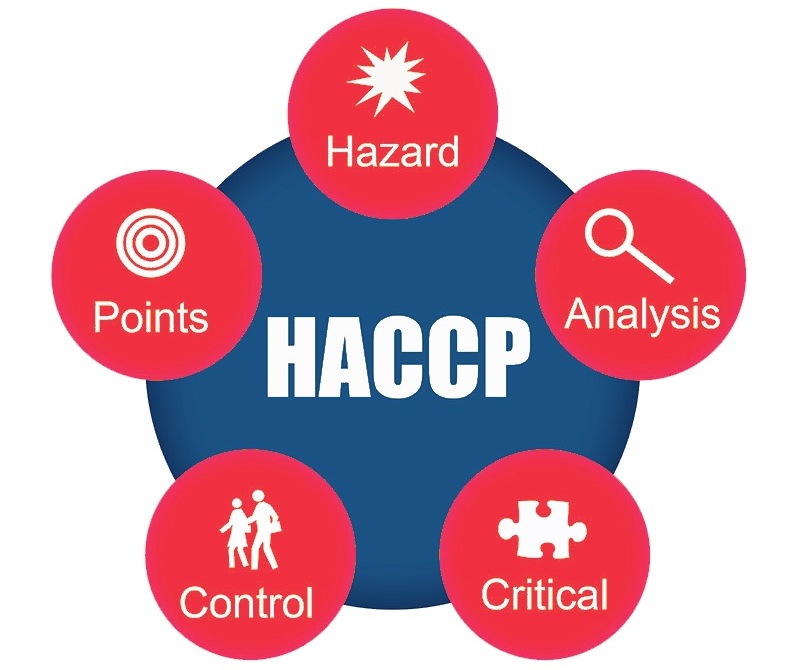HACCP Certification
 HACCP stands for Hazard Analysis and Critical Control Points. It's a systematic approach to food safety that identifies, evaluates, and controls hazards in food production processes. HACCP certification is a recognition awarded to organizations that have successfully implemented and maintained a HACCP system in accordance with established standards.
HACCP stands for Hazard Analysis and Critical Control Points. It's a systematic approach to food safety that identifies, evaluates, and controls hazards in food production processes. HACCP certification is a recognition awarded to organizations that have successfully implemented and maintained a HACCP system in accordance with established standards.
Here are some key points about HACCP certification:
-
Purpose of HACCP:
- The primary purpose of HACCP is to prevent food safety hazards rather than inspecting the final product. It's a proactive approach to ensuring food safety.
-
Seven Principles:
- HACCP is based on seven principles that serve as a framework for identifying and managing food safety hazards:
- Conduct Hazard Analysis
- Determine Critical Control Points (CCPs)
- Establish Critical Limits
- Monitor CCPs
- Establish Corrective Actions
- Verify the System
- Establish Record-Keeping Procedures
- HACCP is based on seven principles that serve as a framework for identifying and managing food safety hazards:
-
Applicability:
- HACCP is relevant to any organization involved in food production, processing, or handling. This includes farms, food manufacturers, distributors, and food service establishments.
-
Legal and Regulatory Requirements:
- In many countries, HACCP certification is a legal requirement for certain types of food businesses. It helps ensure compliance with food safety regulations.
-
Third-Party Certification:
- While HACCP is a system that can be implemented internally by an organization, third-party certification involves an independent assessment by a certification body. Achieving HACCP certification demonstrates to stakeholders that the system is effective and meets recognized standards.
-
Benefits of HACCP Certification:
- Achieving HACCP certification offers several advantages, including:
- Enhanced food safety and reduced risk of foodborne illnesses
- Compliance with legal and regulatory requirements
- Improved quality control in food production processes
- Increased customer confidence and trust
- Expanded market opportunities, as many buyers require suppliers to have HACCP certification
- Achieving HACCP certification offers several advantages, including:
-
Continual Improvement:
- HACCP is a dynamic system that requires ongoing monitoring, verification, and review. Regular audits and assessments help ensure that the system remains effective.
-
Integration with Other Standards:
- HACCP can be integrated with other management system standards like ISO 9001 (Quality Management) and ISO 14001 (Environmental Management) to create an integrated management system.
-
Global Recognition:
- HACCP certification is internationally recognized and accepted, which is important for organizations involved in global food supply chains.


